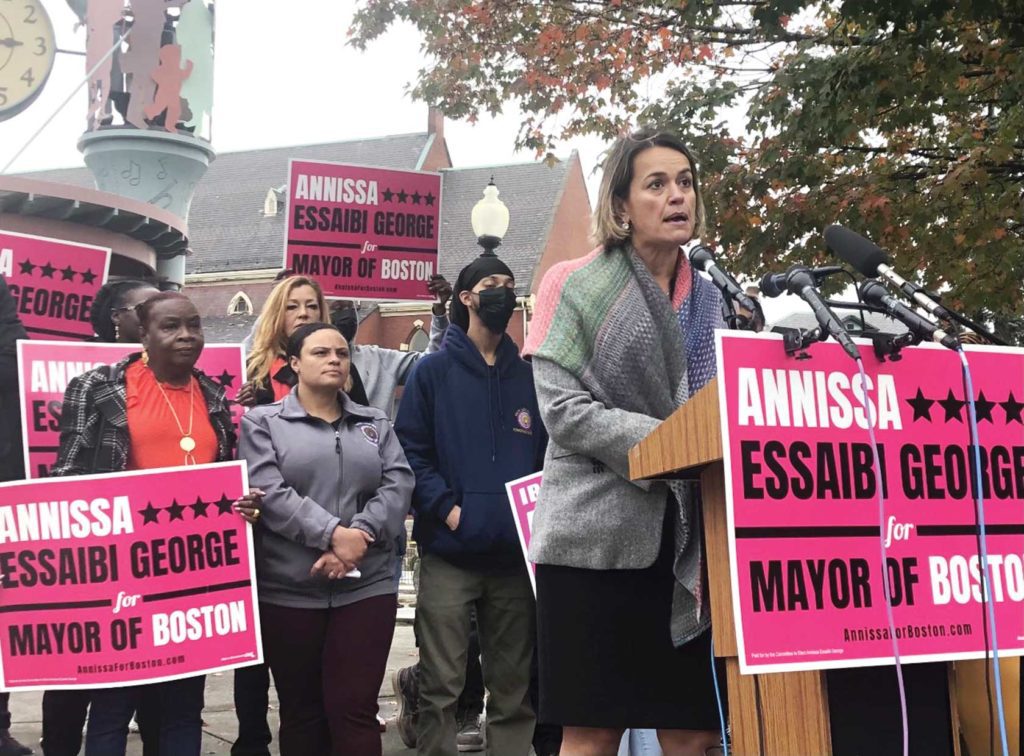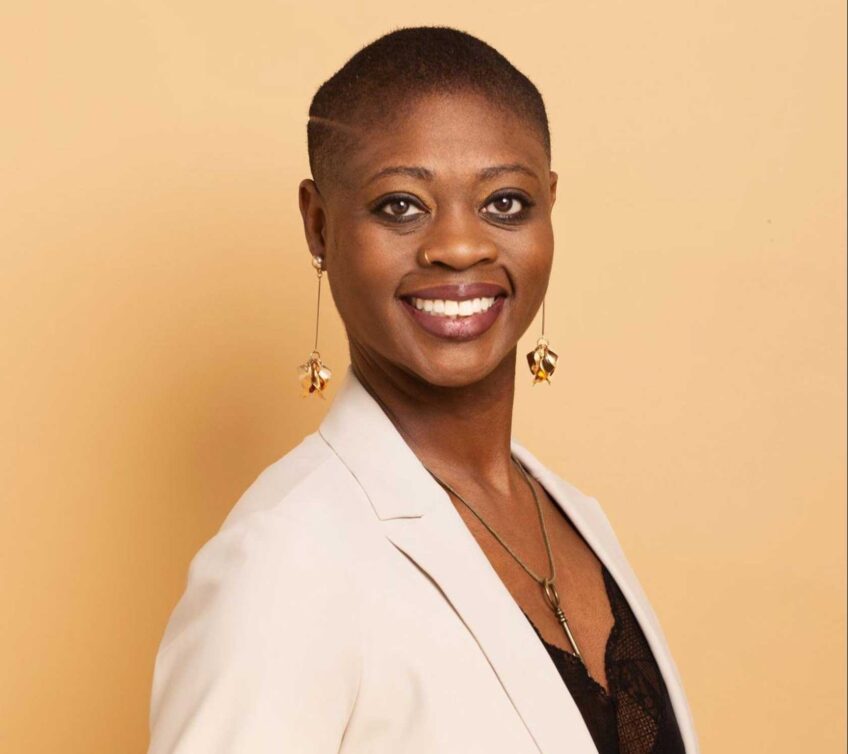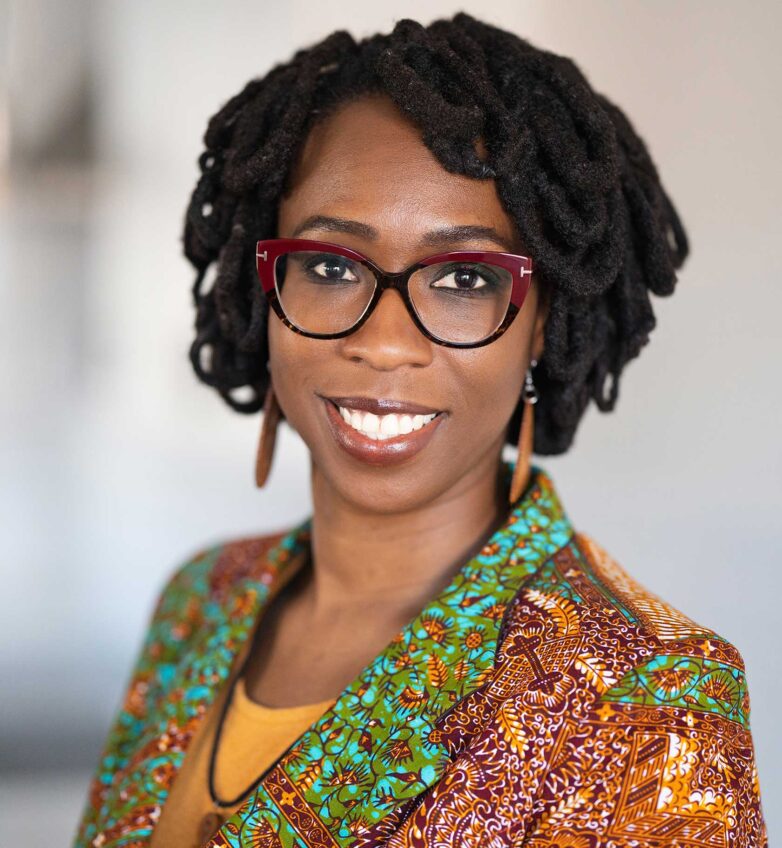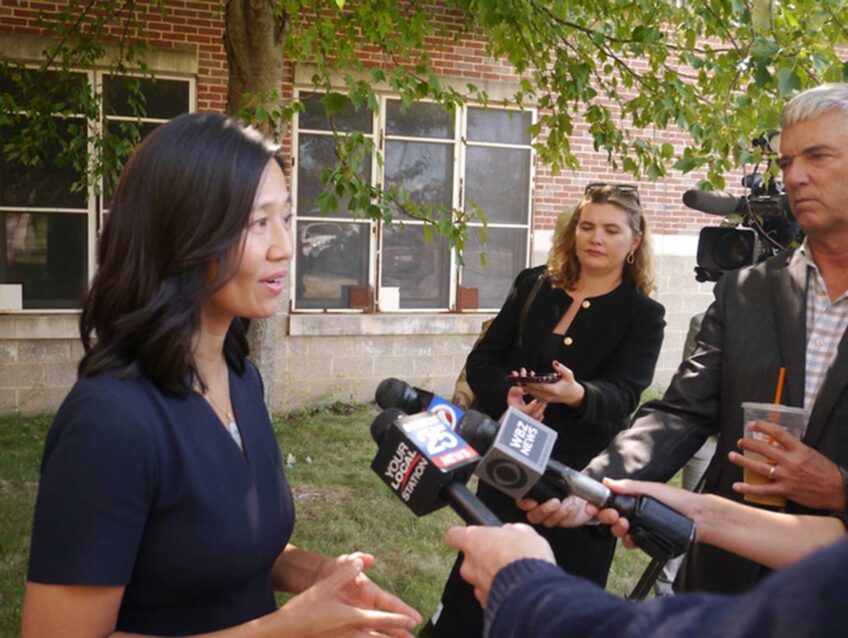Essaibi George details plans for boosting equity
Plans include city contracting and education goals

Boston mayoral candidate Annissa Essaibi George, scrambling to shore up support in communities of color, released a sweeping equity plan last week highlighted by a $100 million investment in Black neighborhoods to boost economic and social development.
The three-term at-large Boston city councilor, who finished 11,000 votes behind Michelle Wu in the Sept. 14 preliminary election, outlined her “Equity, Inclusion and Justice Agenda” during a spirited rally at Dudley Town Common near the border of Roxbury and Dorchester.
With three weeks to go before the Nov. 2 final showdown between the council colleagues, Essaibi George is hoping her detailed policy plan gets her a closer look from voters of color and counters the slew of Black, Latino and Asian leadership endorsements racked up by Wu on the campaign trail.
“Every single day we need to be intentional in rooting out inequity and dismantling racism in our city, from education and housing to climate and health care, and even how and when potholes are filled and sidewalks are fixed,” said the 48-year-old Dorchester resident, speaking beneath an urban maple tinged with autumn’s first gold and with a diverse backdrop of sign-holding supporters standing behind her.
“I believe in a Boston that sees the inequities and everyday injustices — and tackles them head on. I never shy away from the tough conversations and hard work that’s needed to build a better city for all who call Boston home.”
The former East Boston High School teacher and small-business owner released a 44-page plan outlining the historic roots of bias derailing dreams of moving up the economic ladder. While setting forth the underlying principles of her equity agenda, the document details her strategies to narrow the wealth gap, increase homeownership, boost minority vendor opportunities with city government and implement systems to ensure better representation of people of color at all levels of municipal government and institutions.
The action-plan for Essaibi George’s ambitions for change include:
• Posting a senior-level watchdog in every division of city government to monitor compliance with hiring and vendor diversity mandates.
• Increasing housing-development subsidies, removing deed restrictions that act as barriers to affordable housing creation and bringing back out-of-service public housing units.
• Reforming the police department by implementing the stalled recommendations of several law enforcement policy groups and improving transparency by mandating public release of body-cam footage within 24 hours.
• Strengthening the Boston Residents Job Policy and creating stronger mechanisms and penalties to enforce rules widely overlooked or ignored under previous mayoral administrations.
She committed to boosting the city’s anemic rate of contracts to minority businesses, which has registered less than 2% in recent years, to 20%, which would likely reduce the number of white-owned fleets of plough trucks and tree-trimming vehicles working in Black neighborhoods — contracts that help build both economic power and political loyalty in a city where the link between the two are well understood.
Essaibi George, the daughter of a Tunisian immigrant father and Polish-American mother who met as students in Paris, grew up in Dorchester near South Boston and identifies as a woman of color. She ran relatively weak in Black and brown precincts in the preliminary election, finishing far behind Black hopefuls Acting Mayor Kim Janey and District 4 Councilor Andrea Campbell, who largely split the African-American vote.
Her strong showing in the predominantly white, higher-turnout wards of Boston — from Southie to West Roxbury — landed her in the final, but election analysts say she needs to increase her base in order to top Wu, the front-running former council president who has an energized base of young liberal supporters and coveted endorsements from such key figures as U.S. Rep. Ayanna Pressley and Janey.
The race has largely remained polite, but that could change in upcoming debates, where Essaibi George is expected to challenge Wu to provide more concrete answers on her plans as mayor and contrast her own ideas to Wu’s vows to bring back rent control and make public transportation free — proposals over which a mayor has little control.
While emphasizing her lifelong Boston residency, Essaibi George has fashioned herself in the mold of a pothole-fixing urban mechanic, a Tom Menino for the woke age.
“I want progress to be made — real progress — not just abstract ideas that we talk about,” she said on the night of the preliminary contest.
During the Dudley rally, her vow to use $100 million of federal American Rescue Plan dollars to help bridge the equity gap in Boston’s Black community elicited whoops of delight from the Rev. Eugene Rivers, who set down his copy of the high-toned Economist magazine on the brick plaza to applaud the statement.
“Annissa Essaibi George just made history,” said Rivers after the rally. “Never has there been a commitment of this magnitude for the Black community. “It’s unprecedented. I’ve been here since 1976, and this is the first time this has happened.”
The mayoral aspirant said she would create a task force to determine how to allocate the funding.
“Make no mistake,” said Essaibi George. “I full recognize that I will — and need to be — constantly learning in this space. Creating a more equitable, inclusive and just Boston will be a charge I will intentionally and deliberately work towards every day.”




